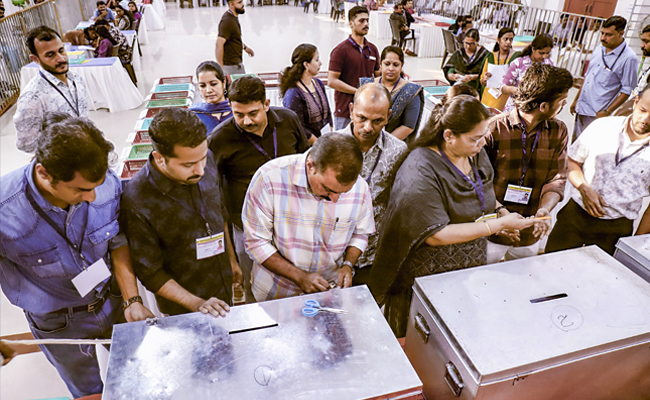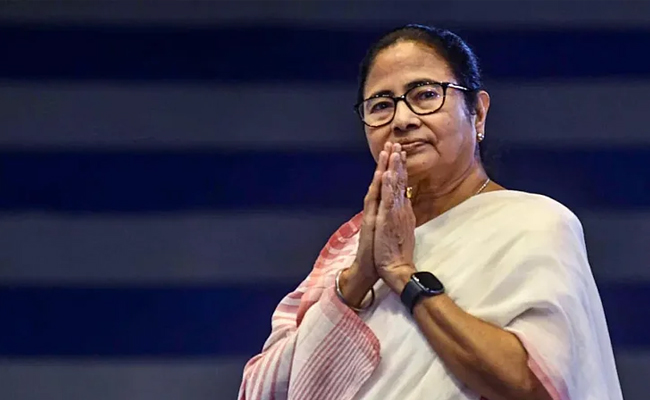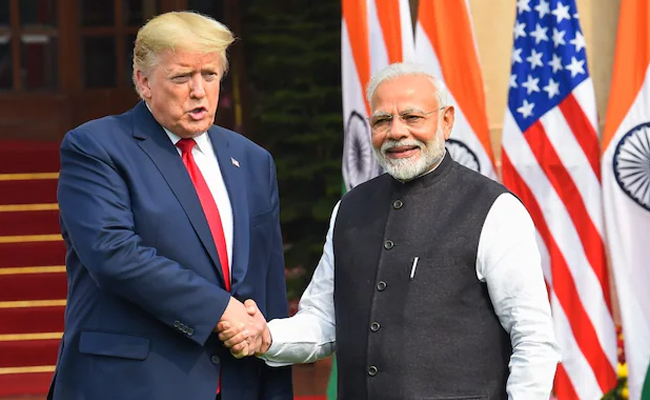Srinagar: As fear gripped Pahalgam following the horrific attack, locals in Kashmir rallied to ensure the safety of stranded tourists. Among the heroes was Imtiaz, a Kashmiri driver who helped Pooja Maney, a dispute officer from Bengaluru, and her mother escape danger and reach Srinagar safely.
Pooja recounted that she and her mother were preparing to leave for Pahalgam when news of the attack reached them. She shared that she was unsure about what to do and immediately called their driver, Imtiaz, for help. “Within a few hours, he ensured our safety by taking us from our hotel in Gulmarg to his residence in Srinagar,” Pooja was quoted as saying by The New Indian Express. She added that they have been staying there since Tuesday.
Tourist agencies report that over 100 families from Karnataka visited Jammu and Kashmir in April. Of these, about 20 families managed to fly back to Karnataka from Srinagar just hours before the Pahalgam attack was reported.
Another Bengaluru tourist, Namrata H., described how quickly the atmosphere shifted from serene to tense, noting that her family was at the Dal Lake when they learned of the attack. She shared that the region went silent—shops closed, roadblocks appeared, and a curfew was imposed. “It was the locals and tourist guides who helped us. They guided my family through the checkpoints and ensured we reached the airport safely by Wednesday evening,” TNIE report quoted her as saying.
With much of Kashmir under shutdown and road routes blocked, many visitors found themselves stranded. They credit local residents and guides for their swift assistance, guiding them through affected areas and arranging transport to Srinagar airport.
In response to the crisis, the Karnataka Tourism Department established a helpline on Wednesday, and had received nearly 50 calls from tourists and their families by evening.
*Locals, drivers, tour guides step in to safeguard tourists after Pahalgam attack*
Srinagar: As fear gripped Pahalgam following the horrific attack, locals in Kashmir rallied to ensure the safety of stranded tourists. Among the heroes was Imtiaz, a Kashmiri driver who helped Pooja Maney, a dispute officer from Bengaluru, and her mother escape danger and reach Srinagar safely.
Pooja recounted that she and her mother were preparing to leave for Pahalgam when news of the attack reached them. She shared that she was unsure about what to do and immediately called their driver, Imtiaz, for help. “Within a few hours, he ensured our safety by taking us from our hotel in Gulmarg to his residence in Srinagar,” Pooja was quoted as saying by The New Indian Express. She added that they have been staying there since Tuesday.
Tourist agencies report that over 100 families from Karnataka visited Jammu and Kashmir in April. Of these, about 20 families managed to fly back to Karnataka from Srinagar just hours before the Pahalgam attack was reported.
Another Bengaluru tourist, Namrata H., described how quickly the atmosphere shifted from serene to tense, noting that her family was at the Dal Lake when they learned of the attack. She shared that the region went silent—shops closed, roadblocks appeared, and a curfew was imposed. “It was the locals and tourist guides who helped us. They guided my family through the checkpoints and ensured we reached the airport safely by Wednesday evening,” TNIE report quoted her as saying.
With much of Kashmir under shutdown and road routes blocked, many visitors found themselves stranded. They credit local residents and guides for their swift assistance, guiding them through affected areas and arranging transport to Srinagar airport.
In response to the crisis, the Karnataka Tourism Department established a helpline on Wednesday, and had received nearly 50 calls from tourists and their families by evening.
Let the Truth be known. If you read VB and like VB, please be a VB Supporter and Help us deliver the Truth to one and all.
Thiruvananthapuram (PTI): Buoyed by the strong performance of the Congress-led UDF in the local body polls, KPCC president Sunny Joseph said on Saturday that the front's results indicated the people had rejected the LDF government.
According to early trends, the UDF was leading in more grama panchayats, block panchayats, municipalities and corporations than the LDF.
The local body polls were held in two phases in the state earlier this week.
ALSO READ: Cong candidate who moved Kerala HC for name reinstatement in voter list, wins
Speaking to reporters here, Joseph said the people of Kerala had extended their support to the UDF.
"We could expose the LDF government’s anti-people stance and the people understood it. The LDF’s fake propaganda was rejected by the people. The UDF is moving towards a historic victory," he said.
He said a united effort, proper preparations, good candidate selection and hard work had resulted in the Congress and the UDF’s victory in the elections.
Asked about the prospects in the Thiruvananthapuram Corporation, Joseph said the party was studying the matter and would comment later.
LDF convenor T P Ramakrishnan said the results would be closely examined.
According to him, the government had done everything possible for the people.
"Why such a verdict happened will be examined at the micro level. People’s opinion will be considered and further steps will be taken," he said.
He added that decisions would be taken after analysing the results. "If any corrective measures are required, we will initiate them and move forward," he said.
AICC leader K C Venugopal said the results showed that people had begun ousting those who, he alleged, were responsible for the loss of gold at Lord Ayyappa’s temple.
"This trend will continue in the Assembly elections as well. It is an indication that the people are ready to bring down the LDF government," he said.
Venugopal said the UDF had registered victories even in CPI(M) and LDF strongholds.
"I congratulate all UDF workers for their hard work. Congress workers and leaders worked unitedly," he said.
Referring to remarks made by Chief Minister Pinarayi Vijayan against the Congress on polling day, Venugopal said the voters had responded through the verdict.
"I do not know whether the chief minister understands that the people are against him. Otherwise, he does not know the sentiment of the people. The state government cannot move an inch further," he said.
He said the results indicated a strong comeback for the UDF in Kerala.
Asked whether the Sabarimala gold loss issue had affected the LDF in the local polls, Venugopal said the CM and the CPI(M) state secretary did not take the issue seriously.
"We took a strong stand on the matter. The BJP played a foul game in it," he alleged.
On the BJP's role in the local body elections, Venugopal alleged that the party operated with the CPI(M) 's tacit support.
"The CPI(M) supported the central government on issues such as PM-SHRI, labour codes and corruption in national highway construction. The CPI(M) is facing ideological decline, and the state government’s policies are against the party’s own decisions," he said.
Meanwhile, LDF ally Kerala Congress (M) leader Jose K Mani said the party could not win all the wards it had expected in the elections.
He congratulated winners from all parties and said the party would closely examine the losses and identify shortcomings. "Later, we will take corrective measures," he added.
Senior Congress leader and MP Rajmohan Unnithan said the trends in the local body elections indicated that the UDF would return to power in the 2026 Assembly elections.
"We will win 111 seats as in 1977 and return to power in 2026. The anti-government sentiment of the people is reflected in the elections," he said.
Unnithan said the people were disturbed and unhappy with the present government.
"The trend indicates the end of the LDF government," he added.
CPI(M) MLA M M Mani said the people had shown ingratitude towards the LDF despite benefiting from welfare schemes.
"After receiving all welfare schemes and living comfortably, people voted against us due to some temporary sentiments. Is that not ingratitude," he asked.
Mani said no such welfare initiatives had taken place in Kerala earlier.
"People are receiving pensions and have enough to eat. Even after getting all this, they voted against us. This is what can be called ingratitude," he said.
Muslim League state president Panakkad Sayyid Sadiq Ali Shihab Thangal said the results were beyond expectations.
"The outcome points towards the Secretariat in Thiruvananthapuram, indicating that a change of government is imminent. We are going to win the Assembly election," he said.

_vb_79.jpeg)



